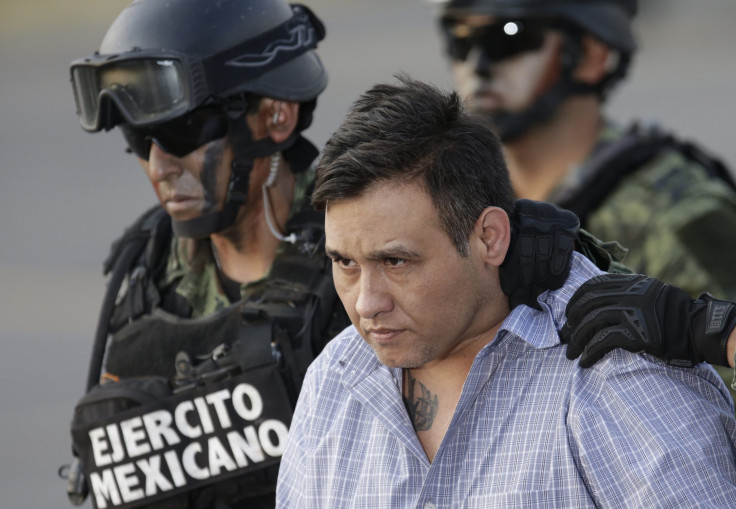Mexico's Drug Kingpin Arrests Mean Little For Curbing Drug Trade Or Crime

Mexico’s government nabbed two major drug kingpins in a week, adding to a string of high-profile cartel leader arrests in recent months. The captures are much needed victories for President Enrique Peña Nieto’s beleaguered government, but there are no illusions that they will put a dent in the drug trade or violent crime that persist in the cartels’ strongholds.
Mexico announced Wednesday that security forces captured Omar Treviño Morales, nicknamed “Z-42,” head of the notorious Zetas cartel. The arrest came just days after authorities captured Servando “La Tuta” Gomez of the Knights Templar cartel in Mexico’s restive western state of Michoacán. Both arrests were the result of longstanding intelligence operations, and occurred without a shot fired, local media reported.
The Zetas had gained a reputation as one of the most violent and vicious drug trafficking organizations in Mexico, regularly engaging in kidnappings, political assassinations and brutal shock tactics, including beheadings. Treviño Morales was “one of the most dangerous and bloodthirsty criminals in Mexico,” said Mexico’s criminal investigations chief, Tomás Zeron, after the capture was announced. Meanwhile, Michoacán residents had called for La Tuta’s capture for months. Vigilante “self-defense” groups began resuming their operations in Michoacán late last year, citing the state government’s failure to take down the cartel leader.
There are various assessments about what the captures mean for each of the cartels. “The Zetas were already extremely weak,” wrote Mexico City-based security analyst Alejandro Hope for Mexico’s El Universal, noting that the cartel’s top leaders, including Treviño’s brother, former leader Miguel Treviño Morales, had been captured in the last several years. In Michoacán, smaller drug gangs have proliferated as state forces battled the Knights Templar cartel. The emergence of a new organization known as Los Viagras has put communities on edge.
Meanwhile, some analysts are warning that the takedowns could result in a spike of violence in the near future as a result of the fresh power vacuums. “The big problem here, though, is that if the Zetas splinter into other organizations, then that can lead to violence in terms of the internal competition,” Mike Vigil, former chief of international operations for the U.S. Drug Enforcement Agency, told Agence France-Presse.
“None of this is going to affect the drug flow, that’s obvious,” said Nathan Jones, an assistant professor of security studies at Sam Houston State University in Texas. But he said that the Peña Nieto government’s rapid-fire strikes on cartel leadership still sent an important message on the state’s control of the situation.
“The arrests show that no one is immune from prosecution. And that is really important,” he said, adding that many people had previously assumed La Tuta would never be captured, given speculation that the cartel boss had made secret deals with authorities. “This shows that the state is asserting control.”
Still, he said the bigger problem in tackling crime in Mexico had to do with improving local law enforcement. “Local policing in Mexico has to get much better,” he said. “One of the key things is salaries. These things don’t come cheap. Mexican police can’t be so underpaid.”
Hope told International Business Times last fall that the Peña Nieto government hadn’t made much significant progress on implementing reforms to local policing. “In terms of producing police reforms at the state and local level, there hasn’t been any leadership,” he said.
Peña Nieto’s government has come under fire in the last several months over corruption and impunity in local security forces, stemming from the case of 43 students from a teacher’s college who went missing last September after a confrontation with police in the town of Iguala. Local police allegedly colluded with a drug gang to abduct and kill the students, according to the attorney general’s office. The case has presented Peña Nieto with one of the biggest tests of his political career, leading him to admit there was a sense of “distrust” and a “loss of confidence” in his government, according to an interview he gave this week to the Financial Times.
Jones agreed that the kingpin takedowns, while significant achievements for Peña Nieto’s government, would do little to reverse the public’s loss of faith in the president. “Getting some major traffickers doesn’t erase Iguala,” he said.
© Copyright IBTimes 2024. All rights reserved.





















